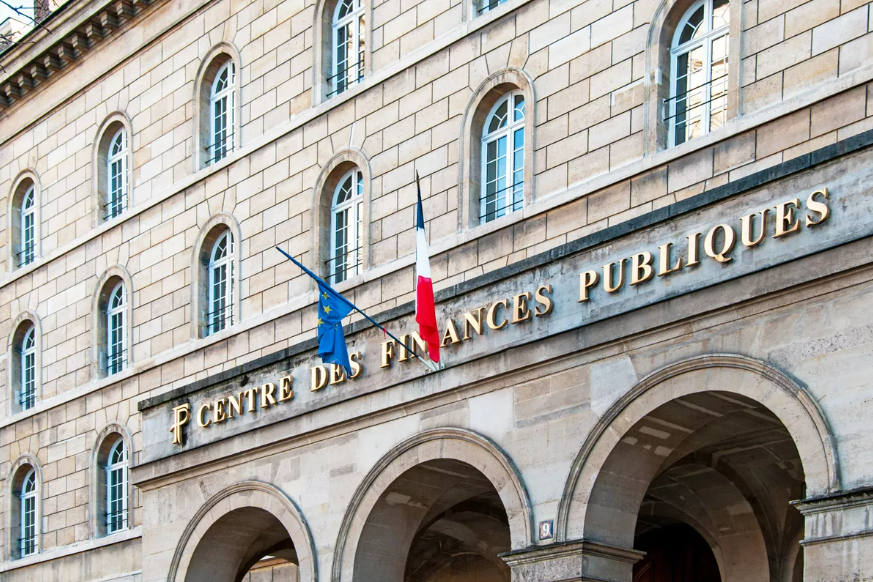Nicolas Goetzmann is Head of Research and Macroeconomic Strategy at Financière de la Cité.
LE FIGARO. - Can we compare the oil crisis of the 1970s with the energy crisis of the 2020s?
Nicolas GOETZMANN. -
We can obviously compare the periods by the intensity of the shock but an important difference is due to the context in which it occurs.
During the years preceding the shock of 1973, French growth was robust, practically in a situation of overheating, with inflation on household consumption averaging 5.5% over these first years of the decade, i.e. say before the crisis.
While the shock did indeed cause a recessionary effect in 1975 (-1%), it appears that household consumption (adjusted for inflation) continued to rise sharply in the years following the shock.
Between the end of 1972 and the end of 1975, real household consumption increased by 11.6%, which testifies to
The current situation is different since the energy crisis is taking place in an economy recovering from the Covid period.
When Russia begins its energy war against Europe, that is to say from the spring of 2021, the French economy is still 3% below its level at the end of 2019 and inflation remains at a contained level, ie 1.9%, but it is this recovery that is directly threatened.
Consequence: over the first two quarters of 2022, household consumption fell by 1.5% while the basic monthly salary, adjusted for inflation, measured by Dares, fell by 2.9% between June 2021 and June 2022.
Inflation in the euro zone jumped to 10% in September, after reaching 9.1% the previous month. In this context, liberal economists argue for lowering public spending. How do you view this recommendation?
When we look at the American situation, we note a real situation of overheating of the economy to which is added this energy crisis (of lesser magnitude) which can justify such an approach of lowering expenditure.
But the European situation is very different.
The inflation that we are experiencing in France and within the euro zone is overwhelmingly the consequence of energy prices, and therefore of Russian actions.
We can also mention the agreement between Russia and Saudi Arabia in the OPEC+ format which aims to keep oil prices at high levels.
If governments did nothing, the already significant drop in purchasing power could be historic.
It seems inconceivable that such an approach of reducing expenditure could be applied.
Nicholas Goetzmann
If we look at the situation in the euro zone, we see that the drop in wages per head adjusted for inflation has been almost 5% since the third quarter of 2021, which brings it back to its level for the year. 2008. In such circumstances, and faced with the economic risk, but also the political risk that this represents, it seems inconceivable that such an approach to lower expenditure could be applied.
In the same way, we must also realize the pressure exerted by energy on industry.
The PPI index (producer price index) which corresponds to an inflation index applied to these companies reached 43.3% in August, which is the direct result of an increase of more than 150% in the energy component of this index since the end of 2019.
Is economic stimulation possible as long as inflation remains so high?
Inflation does not only cause a drop in purchasing power, it also provokes a reaction from the European Central Bank, which now aims to reduce the level of European activity in order to slow down inflation.
The population is thus affected both by the rise in prices but also by a deliberate slowdown in the economy desired by the ECB.
In such a context where inflation is - once again - primarily the result of energy prices, it would undoubtedly be more effective to act at the source.
For example, we see that France is the country with the lowest inflation at European level, this is the result of measures put in place from the end of 2021, the tariff shield.
If such measures are implemented on a large scale,
they would make it possible to lower the level of inflation, slow down the loss of purchasing power, and would also - theoretically - have the effect of blocking the arm of the ECB.
Obviously, the cost would be significant, but the risk posed by the current shock should not be underestimated, both on purchasing power and on the structural capacities of the euro zone economy.
The expected rise in nominal wages will be lower than the level of inflation borne by households.
Over the next twelve months, European households therefore expect to lose another 6% in purchasing power.
Nicholas Goetzmann
Can't the recession expected for 2023 solve the problem?
The recession will reduce purchasing power, the level of investment, and will have little effect on energy prices which do not depend on the ECB, it solves nothing.
What can curb the impact of inflation in the future is a strong commitment in terms of investment, particularly in the energy sector.
The more we invest, the more our production capacities progress, the more productivity advances, and the more prices will be contained in the future.
If the Western world was particularly vulnerable to Russian actions in the fossil fuel sector, it is precisely because investment in this sector has collapsed in recent years, which has made us particularly vulnerable.
In the same way,
In this context, can we expect an increase in wages?
A rise in nominal wages is indeed to be expected, but this will be well below the level of inflation borne by households, which will lead to a loss of purchasing power.
Over the next twelve months, according to ECB surveys, European households expect to lose another 6% in purchasing power.

